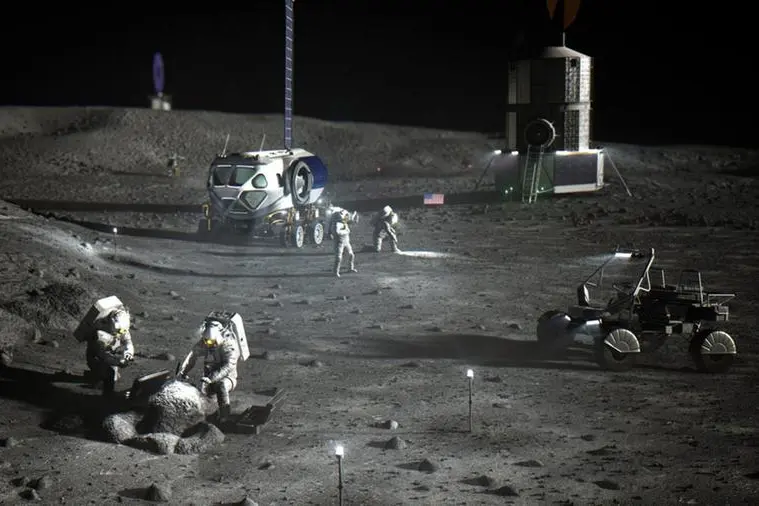PHOTO
Abu Dhabi, UAE: In a new study, a team of researchers led by Dimitra Atri of the NYU Abu Dhabi (NYUAD) Center for Astrophysics and Space Science call for strengthening existing planetary protection policies beyond the space surrounding Earth to include requirements for preserving the Lunar and Martian environments. In addition to biological contamination, they argue that guidelines should be expanded to address more than orbital debris, crowding, and security issues. They also recommend adding compliance incentives to all existing and improved sustainability policies. Team members include Paulina Umansky from the University of California, Berkeley and K. R. Sreenivasan from New York University, New York.
In the paper titled “Sustainability as a core principle of space and planetary exploration” published in the journal Space Policy, the researchers present a new review of existing planetary protection laws and literature on planetary protection policy and identify key shortcomings of rules guiding human space exploration. Specifically, they cite several questions that existing laws leave unaddressed – including issues of atmospheric and abiotic contamination – which constitute important gaps in planetary policy that must be confronted, collaboratively.
Additionally, the researchers present arguments for the necessity of sustainability on planetary objects such as the Moon and Mars and offer examples of terrestrial benefits that could be derived from sustainable exploration practices in space. Specifically, they cite the potential development of new technologies that, while designed for sustainable uses beyond Earth, could advance terrestrial technology.
“Sustainability must become a core principle of human space exploration,” said Atri. “Just as we view climate change as the great challenge facing our terrestrial human society, the space community should begin to address space sustainability with the same urgency. The rules and procedures implemented now will govern the next generation of space exploration -- rules that create a basis for clean and safe space exploration that will not only be productive and enforceable for years to come but are also stronger and more specific in their requirements and enforceability.”
-Ends-
About NYU Abu Dhabi
www.nyuad.nyu.edu
NYU Abu Dhabi is the first comprehensive liberal arts and research campus in the Middle East to be operated abroad by a major American research university. Times Higher Education ranks NYU among the top 30 universities in the world, making NYU Abu Dhabi the highest-ranked university in the UAE and MENA region. NYU Abu Dhabi has integrated a highly selective undergraduate curriculum across the disciplines with a world center for advanced research and scholarship. The university enables its students in the sciences, engineering, social sciences, humanities, and arts to succeed in an increasingly interdependent world and advance cooperation and progress on humanity’s shared challenges. NYU Abu Dhabi’s high-achieving students have come from over 120 countries and speak over 100 languages. Together, NYU's campuses in New York, Abu Dhabi, and Shanghai form the backbone of a unique global university, giving faculty and students opportunities to experience varied learning environments and immersion in other cultures at one or more of the numerous study-abroad sites NYU maintains on six continents.




















